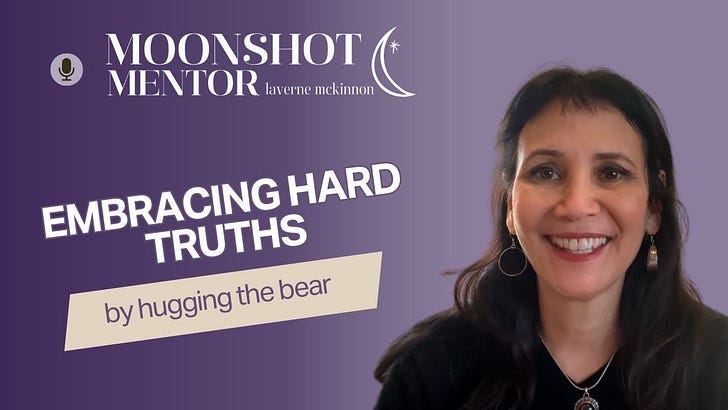Sometimes I hate when people say to me, “you’re not alone” or “you’re not the only one” or “it’s not just you.” While I appreciate the support and kindness, knowing that I’m not the only one who experiences something - say Imposter Syndrome - doesn’t take away the feelings of frustration, shame, and stuckness. What I want is to know how to move past it.…
Listen to this episode with a 7-day free trial
Subscribe to Moonshot Mentor with Laverne McKinnon to listen to this post and get 7 days of free access to the full post archives.












